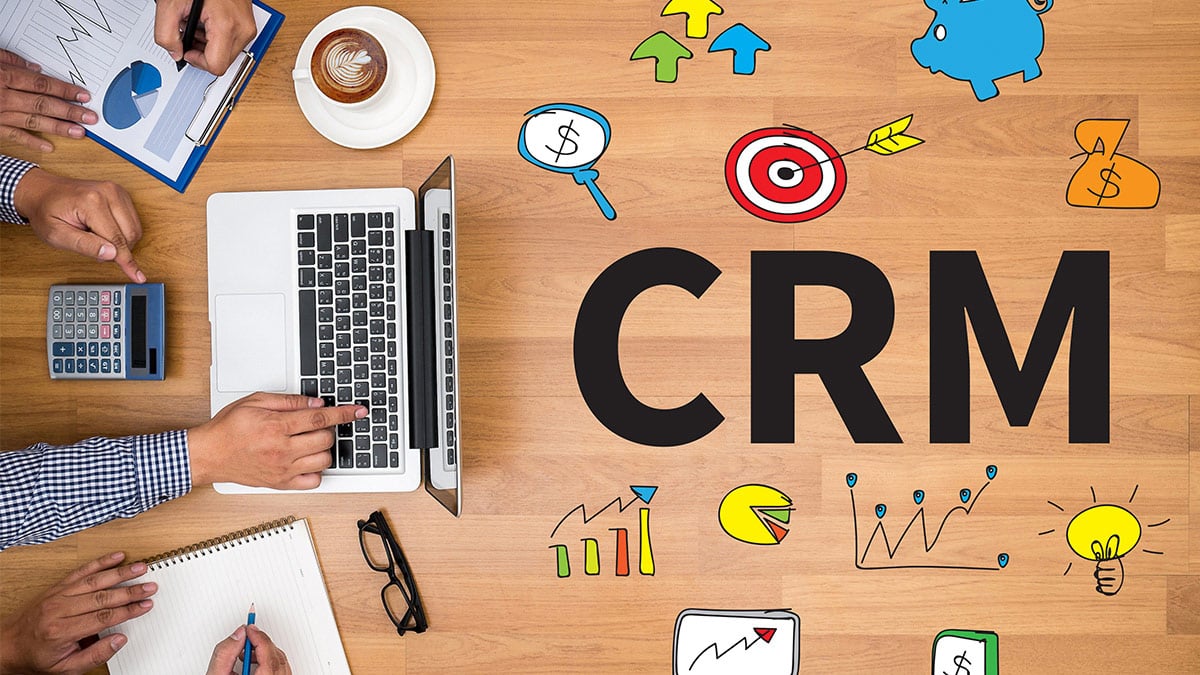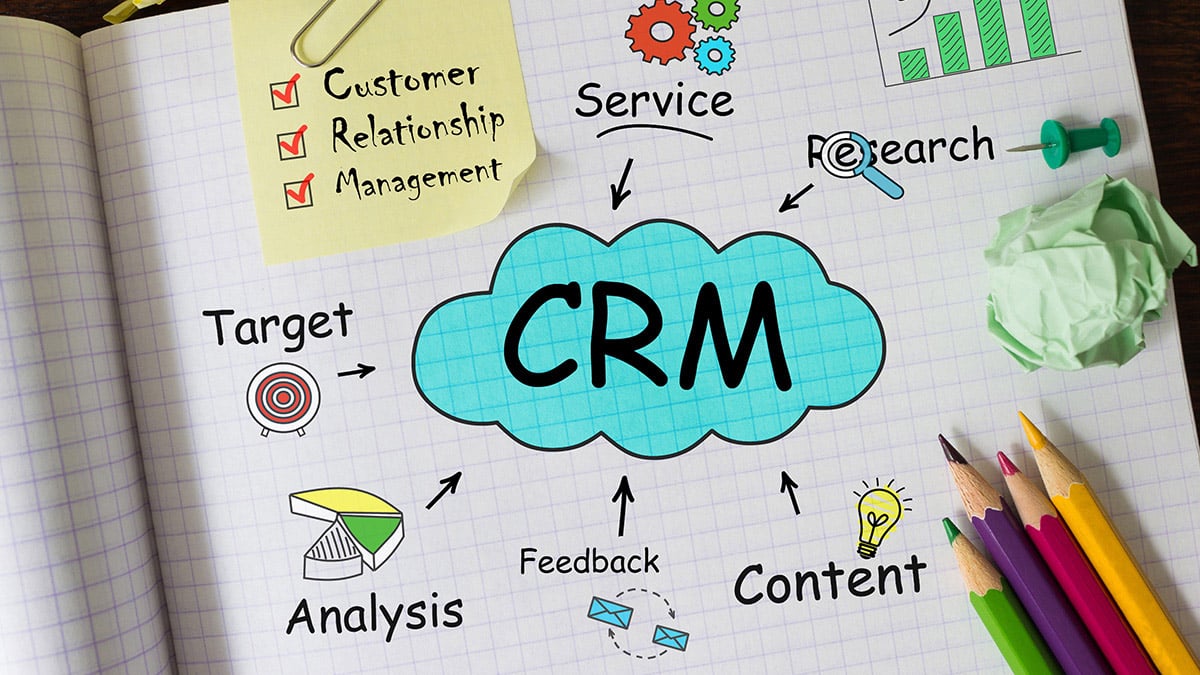Best CRMs for Small Businesses [2022]
Customer relationship management (CRM) software helps small businesses increase sales and drive growth by providing exceptional customer experiences. Because it's increasingly difficult to stand out in today's multi-channel world, small business owners may wonder if they should invest in a CRM.
Our guide to the best small businesses CRM software can help you learn more about what you need from your CRM and which solutions are best for your business based on current user demand, cost, support, and scalability.
What is small business CRM Software?
CRM is "Customer Relationship Management" software that helps you better connect to current and prospective customers by tracking all communications. A CRM replaces that patchwork of spreadsheets, databases, and apps some businesses use to track client data. The goal is to improve business relationships by:
- Consolidating all communications and client data
- Designing and automating your sales processes
- Managing sales leads
- Staying connected to customers
- Tracking Email
- Streamlining processes and improving efficiency
- Having better time management
- Improving profitability
What to look for in the best SMB CRM?
The best CRMs connect all sales leads and customer data in one place. A CRM consolidates all communications, documents, quotes, purchases, and tasks associated with each client. Your entire team can access that information at the right time – to close a deal or deliver exceptional customer service.
Standalone CRM systems best serve small and medium businesses (SMBs) and integration with other software-as-a-service (SaaS) products, including:
- Email marketing
- Social media marketing
- Web conferencing
How to choose the best CRM for small business
The challenge for small business owners is determining which product will work best. To decide which is right for you, consider what your company needs from a CRM solution. If a CRM is too complex to implement and maintain, it will fail to increase sales.
One of the most important things small businesses should consider when investing in a CRM is the ability to track customer communications. A CRM with the ability to monitor, archive, and analyze conversations across channels gives you a chance to keep your finger on the pulse of your business and engage with customers on all levels.
Here are the top considerations for this decision:
- Contact Management: functioning like an address book, it stores a lead's information for easy follow-up later. You can classify your contact as a lead, prospect, or customer. Some CRMS will even capture information automatically through sales.
- Email Marketing: integrate with your email marketing to track when prospects open your email.
- Task Management: mimic project management software, allowing you to retain clients and close deals. Look for sales pipeline tools, to-do lists, and task notifications.
- Lead Management: help you close more deals by moving customers through your sales funnel and automating outreach and follow-up.
- Mobile App: if your sales team is on the go, look for a mobile CRM.
- App Integration: You may need Slack or Gmail integration if it's part of your business communication.
Other factors to consider are:
- Cost
- Support
- Scalability
- Ease of Use/Learning Curve
There is no one-size-fits-all CRM. We've highlighted several of the best CRM software solutions to help you understand and to help you make a faster decision. All come with a free trial.
1) Zoho CRM: Best for startups
Zoho CRM offers a comprehensive sales management solution that fits the needs of any business. It provides sales workflow and reporting tools and a full suite of apps that integrate with the platform for marketing, customer support, accounting, HR, and inventory management.
The platform is easy to use while providing powerful features such as the ability to search social media and LinkedIn for new customer contacts, scan business cards, and automate workflows to help sales teams. Zia, an AI-powered analytics engine, helps you better understand sales anomalies and trends.
This software is best for startups because it offers low cost ($14 a month) and superior customer service. There's also a free option for up to 3 users to help small businesses grow.
Zoho CRM Pros:
- Superior lead capturing
- Integrates seamlessly with other Zoho tools
- Simple to use
- Free plan available
Zoho CRM Cons:
- Advanced features only at higher-priced tiers
- The free plan lacks third-party integration
Zoho CRM Features:
- Contact Management: Yes
- Email Marketing: No
- Task Management: No
- Lead Management: Yes
- Mobile App: Yes
- Free trial: 14 days
- Cost: $14 per user a month/yearly
- G2.com rating: 4/5 stars
2) Salesforce Sales Cloud: Best all-in-one CRM
Salesforce is the best CRM for businesses that want an all-in-one solution, as you can manage your leads, contacts, opportunities, and customers. The dashboard gives you a complete picture of your business with real-time alerts.
Backed by world-class support, Salesforce has you covered and integrates with other business apps to help small businesses manage customer relationships. The Essentials package combines sales and customer service for just $25 per monthly user. Smaller companies can enjoy the power of market-leading enterprise CRM at a lower price.
Salesforce offers robust features such as predictive abilities, lead management, reporting, and even integrations with LinkedIn and Facebook. With this CRM, you can easily create automated workflows and manage leads using the Salesforce Lightning Platform.
Mobile apps help your sales team access their sales data no matter where they are. This marketing tool is also helpful for companies who want to automate marketing campaigns with automation rules or workflow-based triggers. Overall, it's a cost-effective solution that will streamline your sales process with robust features for businesses of all sizes.
Salesforce Sales Cloud Pros:
- Exceptional mobile apps
- Powerful contact management with email and calendar capture
- Integrates with the other Salesforce tech
- Long trial period
Salesforce Sales Cloud Cons:
- High price
- Workflows can be confusing for novice users
- No free plan is available
Salesforce Sales Cloud Features:
- Contact Management: Yes
- Email Marketing: No
- Task Management: No
- Lead Management: Yes
- Mobile App: Yes
- Free trial: 30 days
- Cost: From $25 per user a month
- G2.com rating: 4.3/5 stars
3) Monday: Best for teams
Built on top of monday.com project management, Monday helps teams manage their customer data, sales tasks, and workflows in one centralized place. Your sales team can control their sales pipeline to manage contacts and accounts. You can also build no-code custom dashboards to get a bird's-eye view. Kanban-style boards let you track progress and add due dates, comments, and attachments.
Monday is excellent for teams collaborating on tasks and projects without breaking the bank. With its Monday project management integration, your team will stay on task and run projects efficiently. Plus, you'll be able to manage all aspects of your customer data, sales cycle, and communications in one place.
Monday Pros:
- Highly customizable
- Free plan available
- Offers in-app automation
- iOS and Android apps
Monday Cons:
- Confusing pricing options
Monday Cloud Features:
- Contact Management: Yes
- Email Marketing: Yes
- Task Management: Yes
- Lead Management: Yes
- Mobile App: Yes
- Free trial: 14 days
- Cost: From $0 - 24 per user a month
- G2.com rating: 4.6/5 stars
4) HubSpot: Best for a free plan
HubSpot is a great CRM solution for small business startups. The forever free version comes with unlimited users, data, and up to 1,000,000 contacts. Project manage your entire sales pipeline with a real-time dashboard view.
Hubspot can manage your contacts and leads, organize campaigns, create custom workflows, and follow up with customers. You can map your customer journey through the following:
- Email tracking and templates
- On-screen calling
- Contact management
Hubspot includes over 300 third-party integrations, including Twitter, Facebook, and Slack. Track when a lead opens your email with free Gmail and Outlook integrations. The CRM also offers an analytics tool to enable you to track your marketing campaign's performance. Finally, HubSpot is customizable, so you can make it suit your business needs.
Hubspot Pros:
- Generous forever-free plan
- Robust free set
- 300+ app integrations
- iOS and Android apps
Hubspot Cons:
- Expensive premium plan
- High learning curve
HubSpot Features:
- Contact Management: Yes
- Email Marketing: Yes
- Task Management: Yes
- Lead Management: Yes
- Mobile App: Yes
- Free trial: - N/A as a free version is available
- Cost: From $45 per user a month
- G2.com rating: 4.4/5 stars
5) Freshsales: Best all-rounder
Freshsales is a CRM with all the features you need to optimize your small business. It offers everything your sales team needs to attract quality leads, nurture customer relationships and drive deals with an AI-powered assistant.
Freshsales' built-in lead capture forms allow you to collect data from potential customers on the web easily. Then track the leads through your sales pipeline and convert them into opportunities and customers.
This CRM is perfect for small businesses that want to manage their sales process, marketing efforts, and customer service needs.
Boost your sales teams' efficiency and productivity by automating tasks, including email templates, web forms, and workflows. Freshsales' powerful pipeline management allows you to prioritize, track and monitor deals in multiple pipelines.
Integrate third-party tools like Gmail and Outlook to create bulk email templates and monitor communications with leads. The built-in call feature can also update client records automatically.
Freshsales Pros:
- Simplifies CRM for small business
- AI assistant
- Offers a free forever plan
- iOS and Android apps
- Clear, intuitive dashboard
Freshsales Cons:
- File storage limits
- Fewer third-party integrations
Freshsales Features:
- Contact Management: Yes
- Email Marketing: Yes
- Task Management: Yes
- Lead Management: Yes
- Mobile App: Yes
- Free trial: 21 days
- Cost: From $0 - $69 per user a month
- G2.com rating: 4.8/5 stars
Is a CRM worth it for a small business?
Yes. A CRM can be an effective solution for a small business because it can help you grow and build better client relationships. 91% of companies with more than 11 employees use a CRM as it helps keep track of customer information, automate customer service, and reduce customer churn rate. A CRM also offers valuable insights into your business that can help you make decisions. A CRM can save money by automating repetitive chores such as entering data or filling out forms into their system.
A CRM is an excellent tool for helping you increase sales for your SMB because the software features of CRM will make your sales process easier:
- Reporting
- Automation
- Client management
- AI integrations
Test and implement one of the above CRMs to see if it's the right fit for your business.
Robert is a Taiwan-based writer and digital marketer at iamrobert design. He has a passion for helping people simplify their lives through tech.













